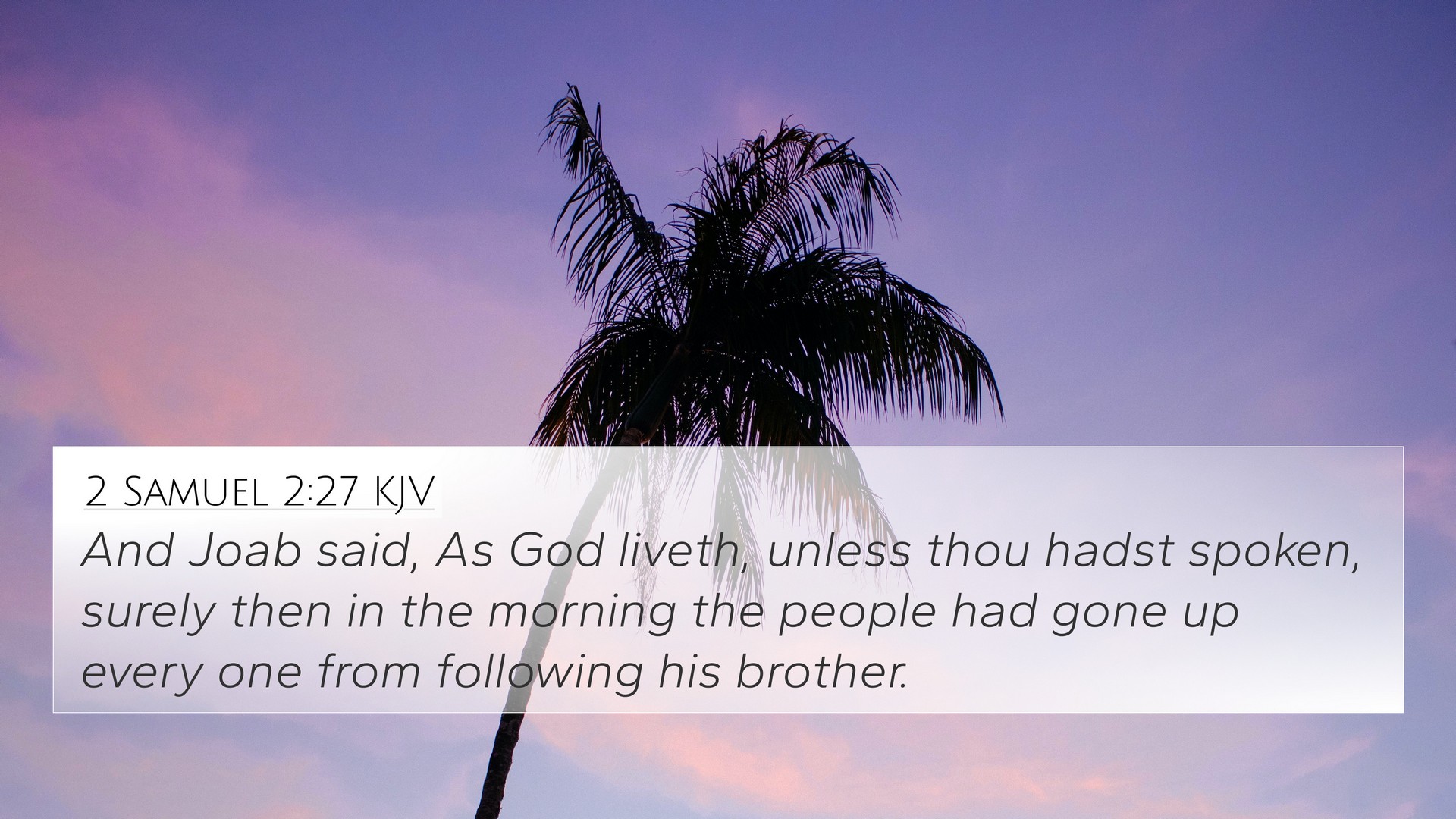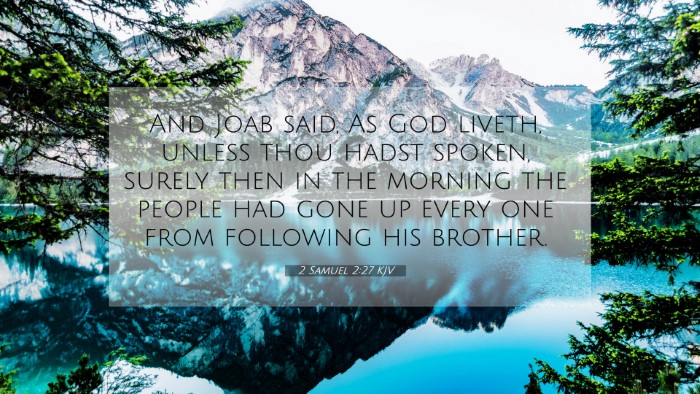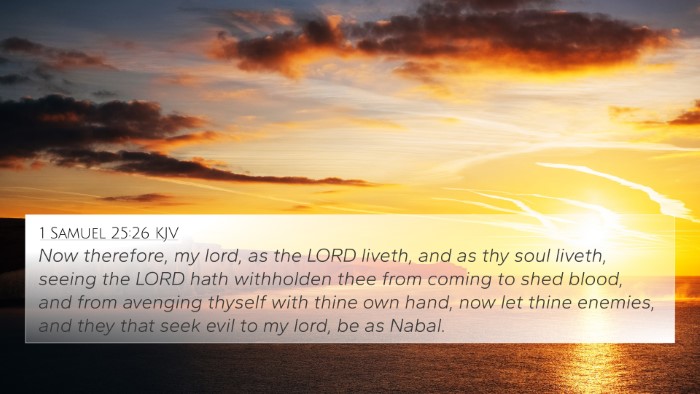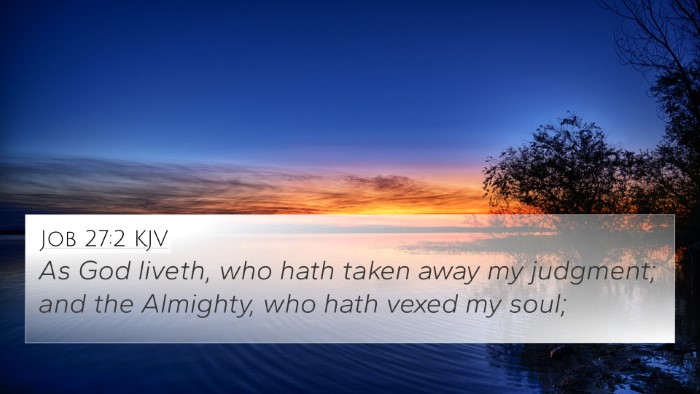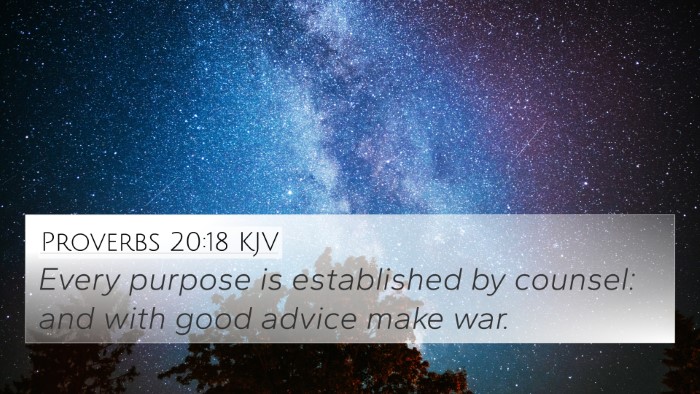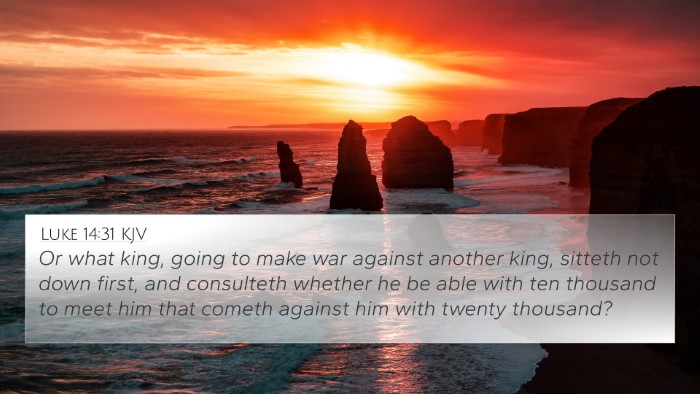Understanding 2 Samuel 2:27
Bible Verse: 2 Samuel 2:27 - "And Joab said, As God liveth, unless thou hadst spoken, surely then in the morning the people had gone up every one from following his brother."
Summary and Analysis
The verse comes from a critical moment in the narrative of 2 Samuel, reflecting on the dynamics of leadership, allegiance, and the consequences of decision-making in the context of ancient Israel's tumultuous political landscape. Joab, the commander of David's army, addresses Abner, who was leading a faction of Saul's army against David. The statement emphasizes the importance of communication and intervention in preventing chaos within the ranks of a divided nation.
Key Themes:
- Leadership and Responsibility: Joab's role underscores the significance of leadership decisions in guiding the people.
- The Weight of Words: Joab points to the power of speech and the potential alterations in behavior that can arise from it.
- Unity versus Division: The verse illustrates the delicate balance of unity in Israel amidst underlying tensions.
Commentary Insights
Matthew Henry's Commentary
Matthew Henry notes that Joab exhibited shrewdness by recognizing the potential fallout that could ensue from unspoken sentiments. His assertion about the people suggests that even a slight word of encouragement might coax them towards instability, illustrating the crucial nature of verbal engagement in leadership.
Albert Barnes' Commentary
Albert Barnes emphasizes the significance of the oath taken by Joab as a solemn declaration of the situation's gravity. He highlights Joab's wisdom in relaying that without his prompting, the direction the factions would take could lead to greater bloodshed and division.
Adam Clarke's Commentary
In his analysis, Adam Clarke sheds light on the immediacy and urgency of Joab's speech. The phrase "As God liveth" serves to authenticate Joab's words, revealing his deep commitment to preserving unity among the people despite the challenges posed by the ongoing rivalry.
Cross-References and Thematic Connections
We can observe several connections between 2 Samuel 2:27 and other biblical texts that enhance understanding through a cross-referencing approach:
- 1 Samuel 26:10-11 - An example of sparing lives in conflict, highlighting the importance of wisdom in warfare.
- Proverbs 15:1 - The power of gentle words contrasted with harsh ones, reflecting how communication can diffuse anger.
- Matthew 5:9 - "Blessed are the peacemakers." This verse parallels Joab's intentions to maintain peace amidst conflict.
- John 13:35 - The call to love one another as a testimony of discipleship relates to Joab’s desire for unity.
- Romans 12:18 - "If it is possible, as far as it depends on you, live at peace with everyone." This reflects similar themes found in 2 Samuel regarding relational reconciliation.
- Ephesians 4:3 - Paul’s encouragement for unity within the body of Christ mirrors the struggle for unity during Abner’s and Joab’s confrontation.
- 2 Corinthians 5:18 - The message of reconciliation connects to the narrative as Joab seeks to ensure harmony among the factions.
Application and Reflection
This verse serves to remind readers of the significance of their words and decisions in leadership roles. It encourages a thoughtful approach in conveying direction to others and emphasizes the necessity of pursuing peace in situations of division and conflict. The implications of Joab's statement resonate with multiple teachings throughout the Bible, validating the relevance of scriptural cross-referencing in understanding God's ways.
Final Thoughts
As you delve into 2 Samuel 2:27 and explore the intricate linkages within the Scripture, consider utilizing tools for Bible cross-referencing to deepen your study. Understanding connections between verses can enrich your insights, whether you are engaging in personal study, sermon preparation, or theological reflection.
